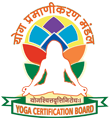Diploma in Public Health and Community Nutrition

Duration : 1 Year(s)
Diploma in Public Health and Community Nutrition
A Diploma in Public Health and Community Nutrition is a specialist curriculum that focuses on public health and nutrition. Typical subjects covered in the curriculum include health promotion, illness prevention, food security, epidemiology, and nutrition education.
Students in this program learn how to create, execute, and assess nutrition programs and policies for communities, groups, and people. Students also learn how to analyze diverse populations' dietary needs and devise ways to enhance health outcomes.
Professionals in public health, nutrition, community health, social work, and other relevant sectors may find the credentials valuable. Graduates may work as community nutritionists, public health educators, health program directors, or policy analysts.
Altogether, a Diploma in Public Health and Community Nutrition can give students the information and skills they need to promote healthy habits and avoid chronic illnesses in their communities.
Public Health Nutrition Course Syllabus
- An Introduction: Food & Nutrition
- Therapeutic Nutrition
- Food Hygiene and Sanitation
- Nutrition Education
- Community Nutrition
- Public Health
- National and International Program for Public Health
- Practical
Diploma in Public Health and Community Nutrition eligibility
The requirements for a Diploma in Public Health and Community Nutrition differ based on the school that offers the program. Some broad qualifying requirements may, however, include:
Education: Candidates must have a 10+2 diploma from a recognized board or institution. A Bachelor's degree in a comparable discipline may also be required by some universities.
Minimum marks: Candidates must have received a certain proportion of marks in their 10+2 education or Bachelor's degree, as indicated by the university.
Work experience: Prior job experience in public health or nutrition-related sectors may be preferred by some organizations.
Entrance exam: Certain colleges may require applicants to take an entrance exam, which may include questions about Biology, Chemistry, and English.
Language competence: If the program is provided in an English-speaking nation, applicants may be needed to demonstrate competency in Hindi and English.
It is important to keep in mind that the qualifying requirements may differ based on the school delivering the program. As a result, before applying, check the exact qualifying requirements of the school delivering the program.
What is the scope of a diploma in public health?
A Diploma in Public Health can lead to a variety of job prospects in government health agencies, non-governmental organizations, hospitals, research institutes, and community health clinics. Here are some of the employment choices available to Certificate in Public Health graduates:
Public health educators seek to educate communities and people about health concerns and to encourage healthy behavior using a variety of venues, including seminars, campaigns, and social media.
Epidemiologist: Epidemiologists investigate the causes and spread of illnesses in communities and devise ways for disease prevention and control.
Health Program Coordinators create, execute, and evaluate public health programs and initiatives in a variety of contexts.
Health Policy Analysts examine healthcare policies and regulations and provide suggestions for changes that would enhance public health outcomes.
Community Health Worker: Community health workers provide information, advocacy, and assistance to underprivileged populations in order to improve their health.
A Certificate in Public Health has a broad and diversified scope, and graduates can find work in a variety of public health fields based on their interests and talents.
What is the scope of a diploma in health and nutrition?
A Diploma in Health and Nutrition can lead to a variety of job prospects in the health and nutrition fields. Here are some of the employment choices available to Diploma in Health and Nutrition graduates:
Nutritionists seek to improve people's health via adequate nutrition. They create and implement nutrition programs for individuals and groups, educate people about nutrition, and do research on the influence of nutrition on health outcomes.
Dietitians work with individuals and organizations to create tailored dietary regimens to help people manage medical illnesses including diabetes, heart disease, and obesity.
Health educators teach communities and people about healthy living and illness prevention. They design and administer health education programs, undertake community outreach, and assess program efficacy.
Food service managers oversee the operations of food service establishments such as hospitals, schools, and restaurants. They supervise employees, create menus, and ensure that food service operations adhere to health and safety laws.
Wellness coaches work with people and groups to create tailored wellness programs that address the physical, emotional, and social components of health.
Overall, the scope of a Diploma in Health and Nutrition is broad and varied, and graduates can find work in various settings, including hospitals, schools, community centers, and private practice. They can work as consultants, educators, managers, researchers, and advocates in the field of health and nutrition.
What is community nutrition and public health?
Community nutrition and public health are two professions that work together to improve people's health and well-being. While there is considerable overlap, there are also significant distinctions between the two professions.
The study of food and nutrition in communities and demographic groups, as well as the development of programs and policies to promote nutrition and avoid nutrition-related illnesses, is the emphasis of community nutrition. Community nutritionists collaborate with local governments, schools, and other groups to promote healthy eating habits, reduce malnutrition, and alleviate food insecurity.
Public health, on the other hand, is concerned with the study of population health and illness, as well as the establishment of policies and programs to promote health and prevent disease. Public health specialists work in areas such as illness prevention, health promotion, and environmental health to identify health hazards and solve health inequities.
Community nutrition and public health are closely connected areas since they both aim to improve population health. These areas understand that social, environmental, and economic variables impact individual health, and they work to address these problems through community-based treatments, policies, and programs.
Ultimately, community nutrition and public health are important components of the larger area of public health, and they work together to improve health and disease prevention at the community and population levels.
What is the salary for a diploma in public health in India?
A Diploma in Public Health graduate's income in India might vary depending on numerous aspects, including the amount of experience, job description, and company. Nonetheless, below is an estimated income range for Diploma in Public Health graduates in India based on some prevalent job profiles:
- Public Health Educator: Rs. 2.5 to 5 lakh per annum
- Epidemiologist: Rs. 3 to 6 lakh per annum
- Health Program Coordinator: Rs. 3 to 7 lakh per annum
- Health Policy Analyst: Rs. 3.5 to 8 lakh per annum
- Community Health Worker: Rs. 2 to 4 lakh per annum
It is crucial to remember that these are only estimates and may vary depending on factors such as region, industry, and employer. Nevertheless, wages might rise with experience and extra certifications.
Is public health a degree or diploma?
Public health is a vast area that may be studied at the undergraduate and graduate levels. You can earn an undergraduate Bachelor's degree or a postgraduate Master's degree in Public Health. These degrees are often completed in 3-5 years and cover a variety of disciplines such as epidemiology, biostatistics, health policy, and environmental health.
A Diploma in Public Health is a shorter curriculum that normally takes 1-2 years to finish at the diploma level. Diploma programs in public health address many of the same themes as degree programs, but with a more specialized curriculum and a more practical focus.
Depending on the level of study and specialization, both degree and diploma programs in Public Health can lead to a variety of job prospects in the field of public health. A Public Health degree or certificate holder might work in a variety of fields, including healthcare administration, health education, epidemiology, health policy, and research.
Can I become a nutritionist with a Diploma?
Absolutely, with a Diploma in Nutrition or a similar discipline, you may become a nutritionist. Nevertheless, the qualifications for becoming a nutritionist differ by nation and location, so verify the exact requirements in your area.
A Diploma in Nutrition may be sufficient in certain countries to practice as a nutritionist, although a Bachelor's or Master's degree in Nutrition or a similar discipline may be necessary for others. Furthermore, in certain areas, dietitians must be licensed or recognized by a professional body.
Even though a Diploma in Nutrition is adequate to practice as a nutritionist in your location, it is critical to maintain your knowledge and abilities by participating in continuing education and professional development programs. This can assist you with staying current with the newest research and trends in the area, as well as improving your ability to deliver effective and evidence-based nutrition advice and recommendations.
What are the advantages of public health nutrition?
Public health nutrition is an important component of public health that entails the study and use of nutrition concepts to promote population health. Public health nutrition has various advantages, including:
Public health nutrition programs seek to encourage healthy eating habits and educate individuals on the need of a balanced and nutritious diet. This can aid in the prevention of chronic illnesses including obesity, diabetes, and heart disease.
Reduces healthcare costs: Public health nutrition can assist lower healthcare expenses linked with chronic illnesses by encouraging healthy eating habits and avoiding them.
Improves maternal and child health: Public health nutrition initiatives that provide information and assistance on optimal nutrition throughout pregnancy and infancy can enhance the health of mothers and children.
Malnutrition: Public health nutrition initiatives can address malnutrition, including overnutrition and undernutrition, in vulnerable populations.
Public health nutrition may help with food security by ensuring that individuals and communities have access to healthy foods.
Promotes sustainable food systems: By encouraging the use of locally produced, seasonal, and minimally processed foods, public health nutrition can help to support sustainable food systems.
To summarise, public health nutrition can aid in the promotion of healthy eating habits, the prevention of chronic diseases, the reduction of healthcare costs, the improvement of maternal and child health, the treatment of malnutrition, the support of food security, and the promotion of sustainable food systems.
| Pricing | $52.00 |
| Stock Availability | AVAILABLE |
| Rating |


Cobus Bester March 7, 2013
Really happy with this print. The colors are great, and the paper quality is very good.
Cobus Bester March 7, 2013
Really happy with this print. The colors are great, and the paper quality is very good.
Cobus Bester March 7, 2013
Really happy with this print. The colors are great, and the paper quality is very good.